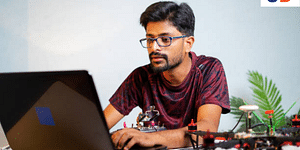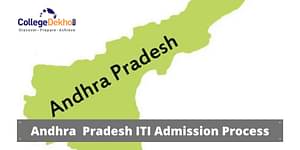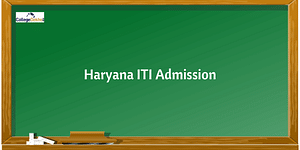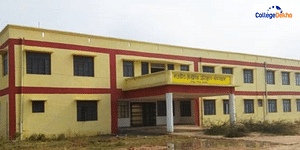B Tech LLB
About B.Tech LL.B.
Bachelor of Technology and Bachelor of Legislative Law, commonly known as B.Tech LL.B, is one of the common integrated courses of law. B.Tech LL.B is a course in law which is completed over a period of six years and aspirants can pursue this programme right after completing their higher secondary education. Some of the leading universities and colleges in the country offer the course of B.Tech LL.B as a part of its specialisations of law.
In the course of B.Tech LL.B, engineering subjects are taught to the candidates in the first three years of the programme and it is followed by teaching law subjects in the remaining three years. Typically, a B.Tech LL.B course is covered in all colleges semester wise, where each semester is usually six months long.
B.Tech LL.B gives students knowledge about law as well as the technical field. They are awarded a dual degree of both the courses, B.Tech as well as LL.B. While pursuing B.Tech LL.B, candidates are imparted education by the means of classroom teaching and are explained about the legal aspect of the course through case studies and moot courts. B.Tech LL.B is both a practical and theoretical programme.
Table of Contents
B.Tech LL.B. Eligibility Criteria
- The candidate must have completed their education till the 10 + 2 level.
- Candidates have to clear class 12th and receive passing marks in all the subjects.
- It is mandatory for the candidate to have completed class 12th in the science stream with Physics, Chemistry, and Mathematics as compulsory subjects.
- The aggregate marks obtained by the candidate at the 10 + 2 level must be about 50% to 60%.
B.Tech LL.B. Syllabus
First Year:
Physics 1 |
Physics 2 |
|---|---|
|
Mathematics 1 |
Mathematics 2 |
|
Environmental Studies |
Basic Electronic Engineering |
|
Chemistry |
Problem Solving with ‘C’ |
|
Data Structures using 'C' |
Electronic Devices and Circuits |
|
Engineering Graphics |
Fundamental of Moot Court |
Second Year:
Mathematics 3 |
Communication Workshop 1.2 |
|---|---|
|
OOPs using C++ and UML |
Legal History of Courts |
|
Data Communication & Networks |
Computer Systems Architecture |
|
Legal Method + Legal Reasoning |
Operating Systems |
|
Microprocessor |
Industrial Management |
|
Theory of Automata & Computation |
Database Management System |
Third Year:
Elective 1 (Data Warehousing and Data Mining/ Natural Language Processing/ Artificial Neural Networks) |
Elective 2 (Embedded Systems/ Human-Computer Interaction/ Real-Time Systems/ Law of Crime 2/ Company Law 1/ Information Technology Law) |
|---|---|
|
Communication Workshop 2.0 |
Software Engineering |
|
Torts and Consumer Protection Law |
Law of Contracts 1 |
|
Design and Analysis of Algorithms |
OOPs through Java |
|
Artificial Intelligence |
Law of Contracts 2 |
|
Constitutional Law 1 |
Family Law 1 |
Fourth Year:
IT for Forensic Science |
Storage Technology Foundations |
|---|---|
|
Web Technologies using .NET |
Compiler Design |
|
Constitutional Law 1 |
Network Security and Cryptography |
|
Family Law 2 |
Law of Crimes 1 |
|
Civil Procedure Code and Law of Limitation |
Mobile Computing |
|
Foreign Language |
Communication Workshop 3.0 |
Fifth Year:
Property Law |
Company Law 2 |
|---|---|
|
E-Commerce and M-Commerce law |
Administrative Law |
|
Labour Law 1 |
Law of Evidence |
|
Environmental Law |
Digital Crime and Computer Law |
|
Right to Information |
Public International Law |
|
Professional Ethics, Accountancy for lawyers and Bar Bench Relation |
Arbitration and Conciliation and Alternative Dispute Resolution Mechanism |
|
Information Security Audit and Monitoring |
Internship |
Sixth Year:
Private International Law |
Digital Copyright and Data Protection Law |
|---|---|
|
Intellectual Property Law |
Information Security Intelligence and Compliance Analytics |
|
Jurisprudence |
Labour Law 2 |
|
Competition Law |
Drafting, Pleading and Conveyance |
|
IT Forensic and Electronic Evidence |
Law of Technology Transfer |
|
Moot Court and Internship |
Taxation Law |
|
Information Security Governance |
Law of Telecommunication convergence |
|
International Trade Law |
Internet Regulation and Jurisdiction |
B.Tech LL.B. Career Options and Job Prospects
Several job opportunities await students after they complete the course of B.Tech LL.B. Candidates can pursue a career in the field of law and also have the option of going into the technical sector as they have studied the course of Bachelor of Technology as well. Some of the most popular job roles that are sought after by students who have a degree of B.Tech LL.B are provided here. Many organisations, private as well as public, recruit graduates who have this degree and offer lucrative salary packages to them.
- Lawyer
- Advocate
- Solicitor
- Lectures
- Legal Advisor
- Cyber Crime Specialist
- Techno-legal Professional
- Specialist in Cyber Arbitration
- Specialist in IT Based Arbitration
FAQs about B.Tech LL.B
Do NLUs offer a B.Tech LLB course?
What integrated LLB courses are available in India, other than B.Tech LLB?
What is taught in B.Tech LLB?
What career options are available after completing a B.Tech LLB?
Can I be a lawyer after B.Tech LLB?
How is B.Tech LLB different from other integrated law courses?
What is the average fee for B.Tech LLB?
What are some leading institutes that offer B.Tech LLB?
What is the minimum qualification required to pursue a B.Tech LLB?
What is the duration of B.Tech LL.B?
What are the top colleges offering B.Tech LL.B. courses ?
I want admission in B.Tech LL.B.. Do I have to clear any exams for that ?
What is the average fee for the course B.Tech LL.B. ?
What are the popular specializations related to B.Tech LL.B. ?
What is the duration of the course B.Tech LL.B. ?
What is the course curriculum for B.Tech LLB?
In B.Tech LLB, students are taught engineering subjects in the first three years followed by law subjects in the remaining three years. As part of B.Tech LLB, students get knowledge about law as well as the technical field. For the detailed syllabus, click here - https://www.collegedekho.com/courses/btech-llb/
I am a Science Student which LL.B Course should I choose?
Law as a course is a very democratic subject tailored for maximum intake of the masses, therefore the eligibility criteria only desires a certain tenure of education and unlike MBBS or Engineering does not require a specific set of subjects to apply. However, it does prescribe a minimum standard of grades before entry to the course. Now, as a Science student, a degree in law can provide you with flourishing opportunities in terms of careers and recently two integrated courses in Law that are, B.Sc LL.B and B.Tech LL.B have provided the students with an opportunity to combine the two variant fields into a single programme. Science students can find themselves to be in-house counsels in corporate sectors and can also find a good career as a Patents expert, etc. The LLB course curriculum by itself is pretty standard and therefore it is upon the student to choose the specialisation of their respective graduation degrees.
What are the career prospects after studying B.Tech LLB?
Cyber Law can be the best career option for B.Tech LLB graduates. However, they can also practice law in India.
What are the best options after B.Tech LLB?
Cyber Law can be the best career option for B.Tech LLB graduates. However, they can also practice law in India.
What is the eligibility criteria for admission in B.Tech LLB?
One can pursue B.Tech LLB course right after Class 12. Students who have passed Class 12th in PCM stream are eligible to pursue six-year Integrated B.Tech LLB course.
In which year of B.Tech LLB course a student can pursue Internship?
Students may be allowed to pursue internship only from the second-year LLB course. Most colleges do not allow students to take internship in the first year.
What is taught in first year of B.Tech LLB ?
The first-year B.Tech LLB course will soley focus on the concepts that are related to engineering. The core engineering concepts are taught in the first year along with a slight inclusion of law syllabus.
Can someone practice as a Lawyer after B.Tech LLB?
One can practice law in India after graduating B.Tech LLB. There is no restriction on the same.
Does any NLU provide B.Tech LLB?
Right now, NLUs do not offer six-year Integrated B.Tech LLB course. Some of the private deemed universities and law colleges across the country offer integrated B.Tech LLB.
Which are the best colleges for B.Tech LLB other than NLUs?
Some of the colleges that offer B.Tech LLB course other than NLUs are Sharad University, UPES, Shobit Institite of Engineering and Technology, etc.
Related Questions
Popular Courses
- Courses
- B.Tech LL.B.










